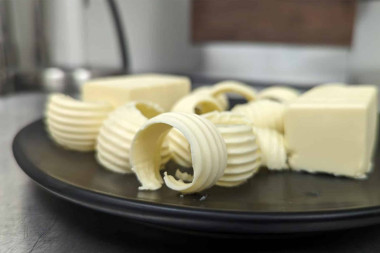Bill Gates-backed startup makes ‘butter’ out of water and carbon dioxide
A California-based startup called Savor has figured out a unique way to make a butter alternative that doesn’t involve livestock, plants, or even displacing land. Their butter is produced from synthetic fat made using carbon dioxide and hydrogen, and the best part is —- it tastes just like regular butter.
